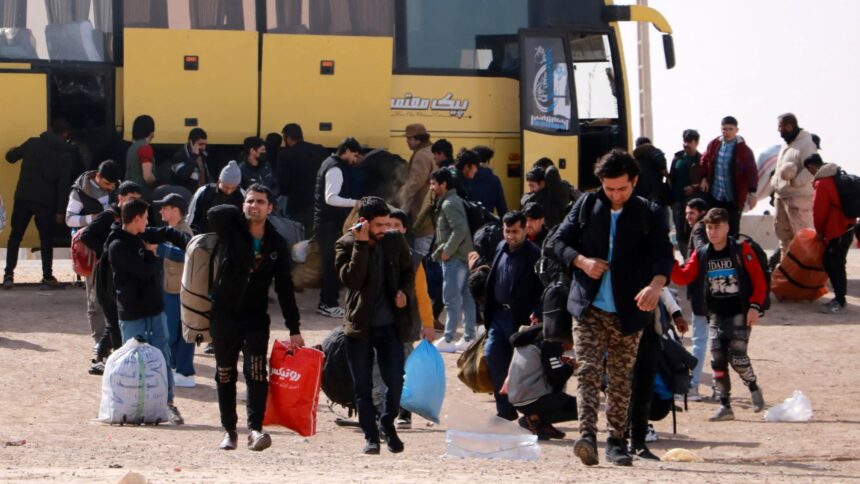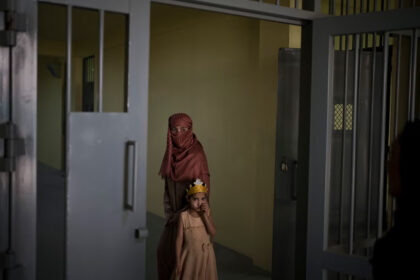By: Abdul Muqit Aryanfar
Migration: A Right Accompanied by Responsibilities
From a human rights perspective, migration is a legitimate, and often unavoidable, phenomenon. However, no country, including Iran, is obligated to accept an unlimited or unregulated influx of undocumented migrants. The notion that vulnerability exempts individuals from adhering to the laws of the host nation is neither socially viable nor internationally sound. Since the 1970s, Iran has hosted millions of Afghanistani migrants, despite lacking the political and economic infrastructure for long-term formal integration. Over the years, cycles of expulsions and restrictions have recurred; yet today’s crisis stems more than ever from a mutual misunderstanding of the “right to migrate” and the responsibilities of migrants.
Migration is a multilayered phenomenon that extends beyond legal documentation. A migrant must carry a dual identity: that of a national of their country of origin and a responsible member of the host society. This includes a commitment to the law, cultural sensitivity, civic engagement, and acceptance of difference. Without these qualities, migration risks becoming a threat to the host society and a source of alienation for the migrants themselves.
Social Conduct and Cultural Challenges
One key factor exacerbating the crisis is the quality of coexistence between some migrants and the host community. Rather than fostering integration, respect for law, and social participation, the long-standing presence of Afghanistani migrants in Iran has in some cases been accompanied by antisocial behavior that severely undermines public trust.
This stems from a deeper issue: the lack of a migration culture within Afghanistan’s own social fabric. In schools, media, and intellectual discourse, migration is often portrayed not as a complex process demanding responsibility, but as a personal escape from hardship or a path to prosperity. This narrative discourages adaptation to the host country’s norms. Examples include illegal employment, traffic violations, poor hygiene, aggressive behavior, and lack of cooperation with local services—all perceived as signs of cultural non-conformity. If such behaviors are neither acknowledged nor corrected from within, they feed cycles of discrimination and social exclusion.
Political Migration and Security Misunderstandings
Migration is not solely an economic or social issue; it carries significant political implications, especially in geopolitically sensitive regions like Iran. Part of the recent tension arises from the Iranian regime’s perception of certain Afghanistani migrants as potential security threats. Their active participation in protests abroad, social media campaigns pressuring Iran, or perceived alliances with adversarial powers has raised alarms in Tehran. Hosting millions of undocumented and unvetted individuals in a country already beset by sanctions, economic crisis, and regional tensions understandably escalates national security concerns.
There is a crucial need to distinguish between legitimate political dissent and actions that may compromise national security. Migrant intellectuals must lead in educating their communities about these boundaries, while simultaneously defending freedom of expression.
The Hidden Problem: Lack of Internal Critique
One of the most pressing cultural issues within the Afghanistani diaspora is its reluctance to self-reflect or engage in honest critique. Over the years, media reports have linked some Afghanistani migrants to organized crimes, including human trafficking, murder, rape, and even espionage for hostile states. Yet public responses from within the community have often been limited to denial, victimhood narratives, or blaming host country media.
No society is without flaws. What separates progressive from regressive communities is how they respond to internal transgressions. We must institutionalize a culture of accountability, critique, and integrity. Silence in the face of wrongdoing is not loyalty; it erodes the collective reputation of the community.
Migrant: Burden or Opportunity?
Why is the presence of Afghanistani migrants often seen as a threat rather than a cultural, economic, or human opportunity? The answer lies in our failure to establish robust civil institutions, shared discourse, credible leadership, and effective models of participation. Many migrants remain deprived of basic rights simply because they lack cohesive representation. We urgently need structures to educate, organize, and advocate for our diaspora.
Peaceful coexistence requires mutual understanding. Educational, cultural, and media institutions must bridge the gap between migrants and host societies. It is misguided to depict migrants merely as laborers or threats, just as it is unfair to view hosts as uniformly racist or oppressive. Both perspectives demand reevaluation.
Solutions: Internal Reconstruction and Mutual Engagement
To overcome this crisis, a multi-level approach is essential:
A. Within the migrant community:
Teach migration ethics and legal awareness in schools and cultural centers. Form coordinating councils to interface with host institutions. Publicly address and reform problematic behaviors. Empower intellectuals and activists to narrate the migrant story realistically.
B. At the state level:
Differentiate between law-abiding and delinquent migrants. End blanket punitive policies that punish all migrants indiscriminately. Foster structured dialogue and offer legal pathways to residency.
C. At the international level:
Mobilize the Afghanistani diaspora to aid in national and social reconstruction. Ensure international organizations invest in education and sustainable development. Support joint cultural initiatives between migrants and host societies.
Conclusion: Dignity Begins with Self-Reflection
The Afghanistani migration crisis is not merely external; it mirrors internal dysfunctions from identity crises to institutional weaknesses. To reclaim dignity, we must first rebuild from within. Migration can be a renewal, but only if paired with honesty, responsibility, education, and civic action. The global view of our people will not shift until we first reform the way we view ourselves. Our honor will not be restored through victimhood, but through maturity, reform, and self-respect.






